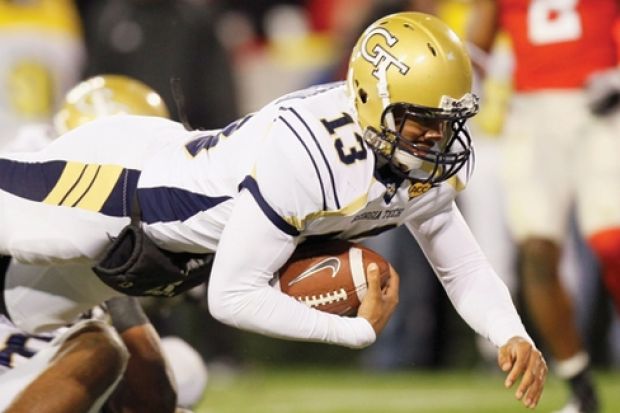"I don't care about academics at all," an alumnus recently emailed the president of a major US research university. "The only thing I care about is winning football games. And if you don't get that right, I am not giving you another penny."
The story is cited in a new book, Abelard to Apple: The Fate of American Colleges and Universities, by Richard DeMillo, director of the Center for 21st Century Universities at the Georgia Institute of Technology.
"Pursuing an entertainment enterprise as part of the university mission is not a good idea. It should not drive strategic choices," he said.
But that isn't the main reason why Professor DeMillo mentions the sport-loving alumnus. Higher education institutions that spend millions of dollars building sports teams of virtually professional standard are symptomatic, he said, of the many mid-ranking American - and by extension British - universities that have become far too focused on inappropriate and often unwinnable competitions.
"Universities can ruin good programmes by pursuing the impossible goal of being 'the next great research university'," said Professor DeMillo. "What is a clearly drawn picture in the US might be a metaphor for the UK, where institutions try to achieve financial security by imitating Cambridge or Princeton in areas such as patent applications. It's not that different from pursuing football trophies."
Certain familiar factors - the growth of for-profit providers, various forms of distance learning, increasing international competition for domestic and foreign students, pundits and politicians asking whether we need so many state-funded universities - are putting pressure on the whole US system.
The Ivy League and other elite institutions, in Professor DeMillo's view, are "comparatively well placed, because of their financial resources and brands, to set their own agendas - which is not to say they all will. They can move in directions independent of the herd."
He added: "We know for sure that those in the middle are going to be transformed by what is happening. It has drastic effects on a typical state university system if it loses 15 per cent of its students."
As the advantages accruing from location lessen and fee differentials narrow, the institutions squeezed between the traditional heavy-hitters and the agile new kids on the block face uncertain futures.
Yet Professor DeMillo believes that the leaders of the "universities in the middle" in the US are often too inward-looking, set in their ways and inclined to romanticise their weaknesses. Instead of forgetting about those "above them" and forging distinct identities, he sees them producing "strategic plans (that) are too generic, which don't say nearly enough about the specific strengths of particular institutions".
Their UK equivalents might be well advised to sit up and take notice.
Register to continue
Why register?
- Registration is free and only takes a moment
- Once registered, you can read 3 articles a month
- Sign up for our newsletter
Subscribe
Or subscribe for unlimited access to:
- Unlimited access to news, views, insights & reviews
- Digital editions
- Digital access to THE’s university and college rankings analysis
Already registered or a current subscriber? Login
